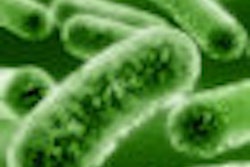The Violight ultraviolet-light toothbrush sanitizer was less effective than Listerine and hydrogen peroxide in reducing bacteria on a toothbrush head, according to a study to be published in the Journal of Dentistry (August 2010, Vol. 38:8, pp. 621-625).
Researchers from the University of Buffalo and Hill Top Research evaluated the antibacterial effect of the Violight personal travel toothbrush sanitizer on biofilms after toothbrush exposure to human saliva compared to Listerine Antiseptic, 3% hydrogen peroxide, and water (control).
They immersed 20 toothbrush heads (n = 5/Gp) in saliva for 24 hours to allow for bacterial growth and biofilm formation. The Violight sanitizer and antiseptic(s) were used for 7 minutes; after treatment, brush heads were rinsed and placed into 10 mL of 2x Association of Official Analytical Chemists (AOAC) Letheen Broth, sonicated, and vortexed for 10 seconds.
Results showed that those toothbrushes treated with 3% hydrogen peroxide had significantly lower counts of aerobic and anaerobic bacteria than those treated with Listerine, Violight, or water. Those treated with Listerine had significantly lower counts than Violight and the control for both types of bacteria, and Violight had significantly lower counts than the control for aerobic bacteria. The hydrogen peroxide and Listerine were most effective in rapidly killing bacteria when compared to Violight.
"Results showed that 3% hydrogen peroxide was most effective in reducing the numbers of both aerobic and anaerobic bacteria present on the toothbrush heads," the researchers concluded. "Under the same test conditions, Listerine Antiseptic was shown to be secondarily effective for the same bacteria, while the Violight unit was the least effective when compared to the other treatment groups."
Copyright © 2010 DrBicuspid.com



















